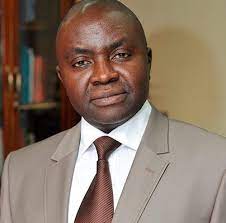The Centre for the Promotion of Private Enterprise (CPPE), one of the leading advocacy groups promoting organized private sector (OPS) sustainable growth, has warned the Federal Government against any use of military force in the current Niger Republic’s political crisis in view of the potential negative implications for the Nigerian economy.
A statement issued by the Centre’s Director/CEO, Dr. Muda Yusuf, on Tuesday indicated that the concerns of the group were based on the volatility of the current situation of the nation’s economy, especially the tax-reform and other recent policy measure-induced challenges.
According to him, Nigeria’s current balance of payment position is currently weak and may not be able to support any major military engagement outside the country’s shores even as the external sector is fragile, posing a profound challenge of currency volatility.
Yusuf, a former Director-General of the Lagos Chamber of Commerce and Industry (LCCI) predicted that the worsening of the external sector would adversely impact investors’ confidence, weaken growth prospects and decelerate the pace of economic recovery.
In addition, the economist pointed out that in a war situation, there were inherent risks of destruction of assets, damage to infrastructure, disruption of the livelihoods of innocent citizens, softening of investors’ confidence, deceleration of investment growth, aggravation of country risk and the dampening of GDP growth prospects.
Speaking on the implications of military intervention for Nigeria’s fiscal deficit, the seasoned economist said: “Recent reforms by the current administration have impacted positively on the fiscal consolidation efforts. Prospects of fiscal deficit reduction in the near term look very bright.
“However, in the event of a military intervention in Niger, these gains may be eroded. The reason being that we would see an escalation in the defense budget which would trigger a surge in fiscal deficit, worsen inflationary pressures and a spike in debt levels and related debt service burden.
“Resources that would have been used for the funding of critical infrastructures such as roads, electricity, education, health railway system would be deployed to funding military operations. While it may be easy to determine the commencement of a military campaign, it is often difficult to predict the duration, scope, intensity, dimension and the ultimate cost. Military operations are typically dynamic. Underlying assumptions may change as the military operations progress. And this may have significant budget implications”, Yusuf added.
The CPPE boss pointed out that if Nigeria decided to go ahead with a military campaign in Niger, the country’s defense spending may have to increase substantially possibly by 100% or more, with over 70% of the spending being in foreign exchange.
He further noted that though the military option would be an ECOWAS decision, the burden of prosecuting the operation would have to be borne substantially by Nigeria, adding that these are scenarios Nigerians need to worry about.






